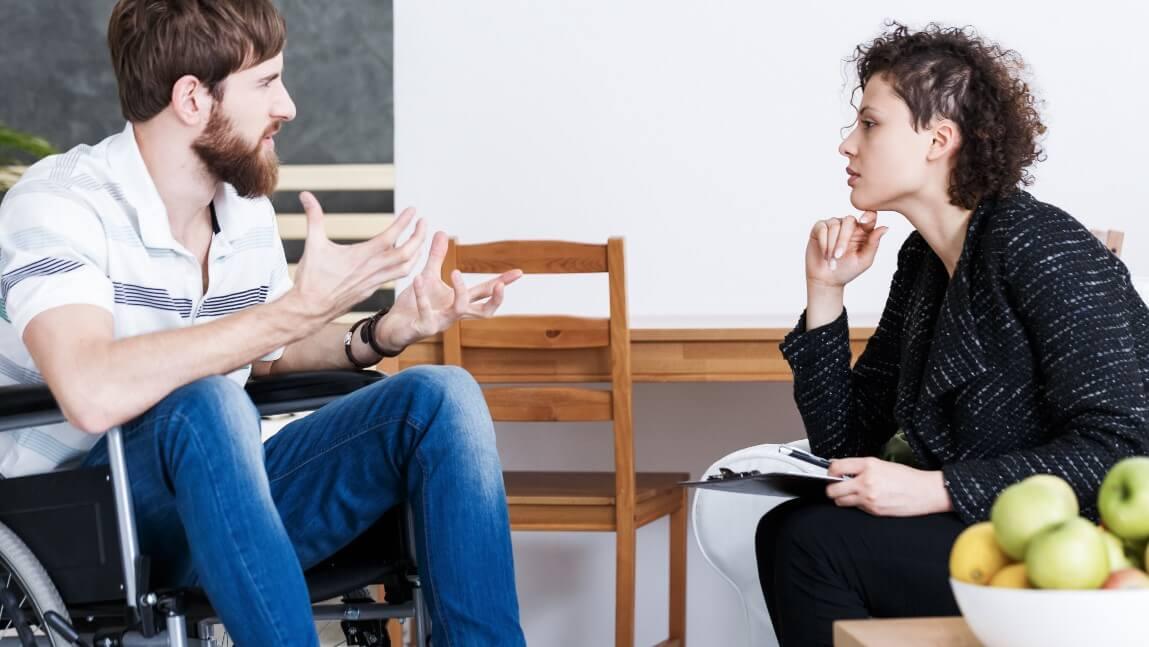Three hundred thousand people live with spinal cord injuries in the U.S., and 18,000 new cases occur worldwide yearly.The International Spinal Cord Injury Community Project was created as a way to begin to understand the experiences of people living with spinal cord injury (SCI), and a symposium hosted by the University of Vermont in June offered an opportunity for conversations around SCI innovations and research.
Led by University of Vermont rehabilitation professor Reuben Escorpizo and part of a global initiative involving 40 countries, the symposium featured talks by researchers and disability rights advocates with SCI.
“We are masters at logistics on every level on an average day on this planet,” said Melinda Simms, an advocacy coordinator with the United Spinal Association of New Hampshire who lives with SCI, as she shared her experience at the symposium. “For whatever is on my schedule - even something as simple as picking up the morning newspaper at my corner store.”
An Air Force veteran with decades of experience in the medical field as a patient advocate, EMT, trauma technician, medical assistant and phlebotomist, Simms emphasized the symposium’s capacity to highlight the need for innovations in treatment, accommodations and accessibility.
“Did you know, for example, that exam tables, mammogram equipment, and dental chairs are not set up for someone in a wheelchair? Emergency rooms are rarely accommodated to the special needs of a quad[riplegic],” said Simms.
"The inclusion of the perspectives of people living with spinal cord injury is a unique aspect of the International Spinal Cord Injury Community Project (InSCI, pronounced IN-skee)," said Escorpizo, who serves as a national coordinator.
“You can't be talking about a health condition without engaging the people who have it; because there is no way that you will have a firsthand understanding of what they're experiencing,” said Escorpizo. “That is key to this dialogue.”
Escorpizo got involved with InSCI in 2015 when several countries convened to discuss how to help the World Health Organization (WHO) systematically collect international data about the lived experience of people with spinal cord injuries. The partnership was a natural extension of Escorpizo's standing collaboration with the WHO and Swiss Paraplegic Research.
The first wave of the InSCI study showed that SCI impacts various aspects of daily living, including employment, education, family life, satisfaction, and health-related quality of life. "While we already knew this to be the case, InSCI provided the first large-scale study involving multiple countries and a global picture of the burden of SCI and its variation across countries regarding resources and infrastructure," said Escorpizo.
"The issues identified through InSCI can be used to inform and develop disability policies. With double the number of countries involved in the project's second wave, researchers have a more significant opportunity to identify meaningful ways to impact the lives of people with SCI," Escorpizo said.
Edie Perkins, an advocate whose SCI resulted from being hit by a car while biking, has seen the profound impact that building connections among people with SCI can have through her work as executive director of the Kelly Brush Foundation.
"We've seen that can be the most life-changing experience - getting an opportunity to be around like-minded people who've had shared life experiences and can share war stories and life hacks and ask the questions about how you do everything from going to the bathroom to getting in the car, going back to work, getting into relationships," said Perkins. She encouraged the occupational and physical therapists in the audience to spread the word to their patients about the Brush Foundation and its latest project, which offers a virtual map of adaptive sports programs and facilities and accessible hikes and beaches, and a networking platform.
InSCI researchers seek to engage an additional 800 people in the study's survey cycle ending in March 2024. More than 10,000 U.S. responses have been collected since the survey began in 2017.
“Before that, researchers thought that all people with paralysis cared about is walking,” said Cristina Sadowsky, an InSCI leader and steering committee member from the Kennedy Krieger Institute at Johns Hopkins University.
“No one knew what it takes to get ready in the morning. No one knew the bathroom raised a whole protocol. No one knew about the relentless pain most individuals with spinal cord injury lived with and that no amount of medication would take it away,” said Sadowsky. “InSCI Is a globalized project that allows us to get real information. It allows us to describe the problem well to address it. It allows us to find what else matters.”
Mike Lamoy, whose SCI resulted from a car accident, has partnered with the InSCI project since its inception to share his perspective and offer feedback to the researchers.
“I think a lot of people with spinal cord injuries or disabilities, in general, would like their voices heard,” said Lamoy. “People in the healthcare field must get information from us. That way, more can be done with us, together.”
More than 50 healthcare providers, occupational and physical therapy students, advocates and people with SCI and their families attended the symposium in person and online. Researchers presenting talks included Christina Sadowski from Kennedy Krieger Institute, Reuben Escorpizo from the University of Vermont, Michael Furtado from the University of North Texas Health Sciences Center and Lucas Burns from the University of Texas Medical Branch. InSCI Chief Operating Officer Christine Thyrian of Swiss Paraplegic Research also spoke at the event.
The symposium was supported by the University of Vermont, the InSCI network, the Kennedy Krieger Institute at Johns Hopkins University, the University of Texas Medical Branch in Galveston, Texas and the University of North Texas Health Science Center.
For more information or to participate in the InSCI project, contact Professor Reuben Escorpizo at reuben.escorpizo@med.uvm.edu.
